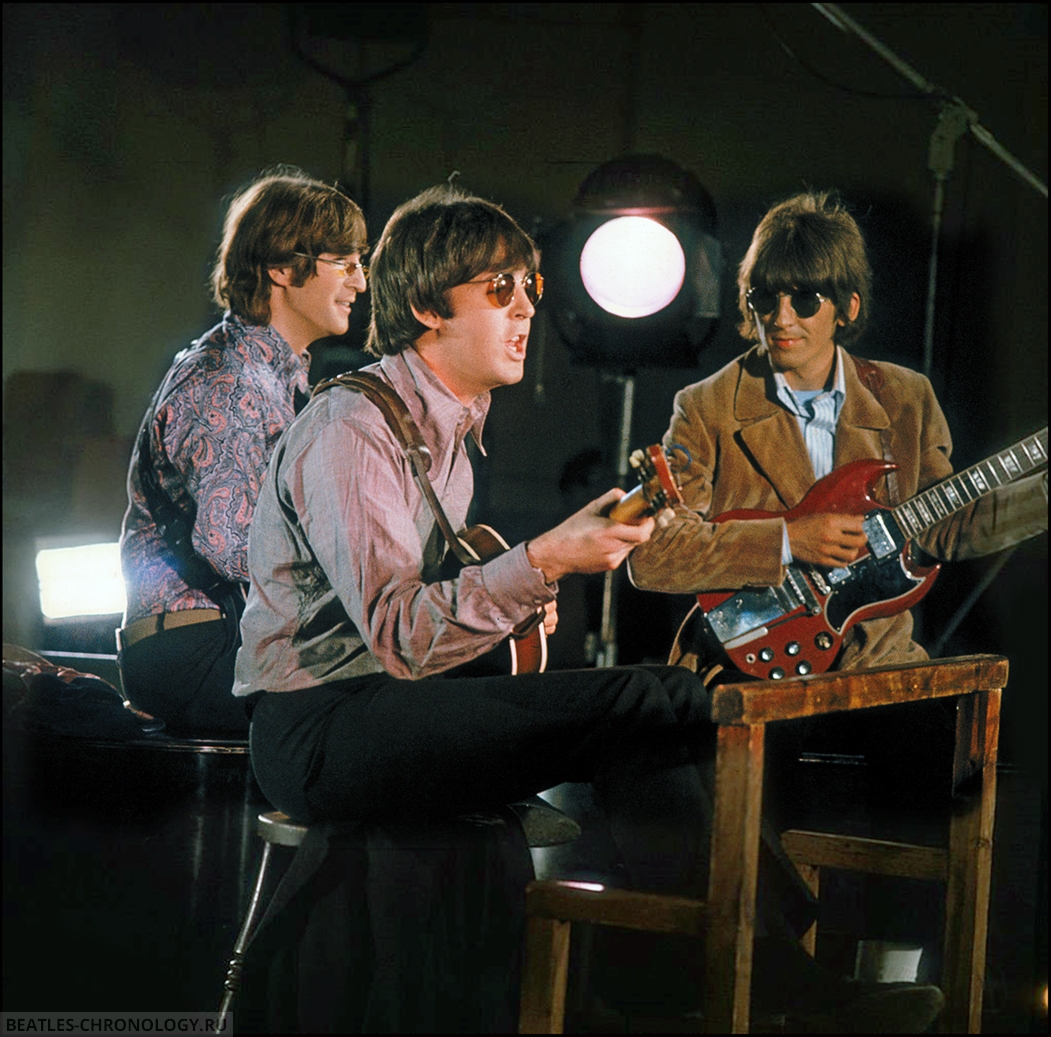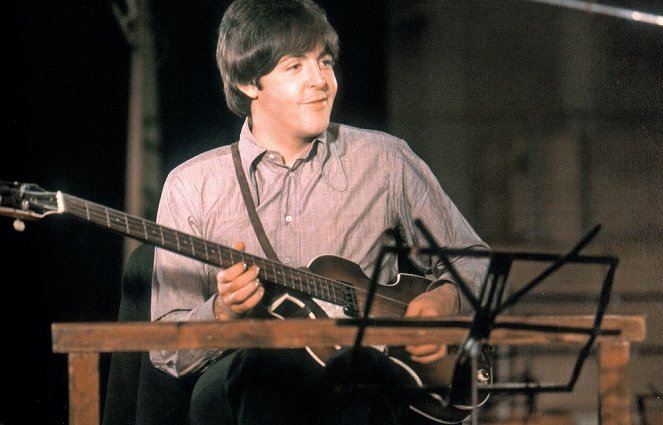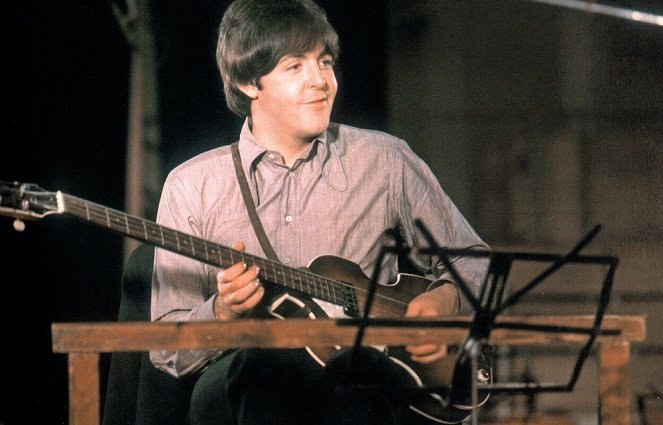Paperback Writer – Paul McCartney and The Beatles’ Bold Leap into Rock Storytelling
When The Beatles released “Paperback Writer” in May 1966, they weren’t just putting out another catchy single. They were making a statement. This was Paul McCartney stepping into the front lines as both storyteller and innovator, pushing beyond the pop conventions that had defined their earlier hits. It was witty, loud, experimental, and playful — and it marked one of the first times McCartney let his imagination take center stage in writing from a truly unusual perspective: the voice of a struggling novelist begging for success.
Even now, nearly six decades later, “Paperback Writer” still feels fresh — a driving rock anthem laced with humor, sarcasm, and a razor-sharp riff that proved The Beatles could out-rock almost anyone.
The Origins of the Idea


Paul McCartney has often explained that the inspiration came from his Aunt Lil. She once teased him, asking why he didn’t write something other than “silly love songs.” Taking that as both a challenge and a bit of cheeky motivation, Paul set out to craft a song with a storyline — but not a conventional romance. Instead, he imagined the plight of a desperate writer trying to convince a publisher to take on his manuscript.
The “manuscript” in question wasn’t high art. In fact, Paul leaned into the idea of mass-market pulp — the kind of paperback that sold for cheap, traded hands quickly, and was consumed by everyday people rather than critics. By choosing such a mundane, even comical subject, McCartney subverted expectations. The Beatles weren’t just singing about love anymore — they were singing about life, work, ambition, and rejection.
The Music: Loud, Raw, and Revolutionary


While the lyrics told the story, the sound of “Paperback Writer” was just as groundbreaking. This was one of The Beatles’ loudest tracks to date, and it marked a new level of experimentation with studio techniques.
-
The Riff: Built around a punchy, descending guitar line, the song opens with a sound that immediately grabs attention. It was heavier than much of their earlier catalog, signaling that The Beatles could compete with the harder rock sounds beginning to emerge in the mid-1960s.
-
The Bassline: McCartney’s bass part was unusually prominent for the time. He used a new Rickenbacker bass and pushed it forward in the mix, giving the track a thunderous bottom end. Producer George Martin and engineer Geoff Emerick helped create this booming presence by experimenting with direct-injection recording techniques, giving Paul’s playing more clarity and depth than ever before.
-
The Harmonies: John Lennon and George Harrison supplied sharp backing vocals, chanting the repeating refrain almost like a Greek chorus mocking the writer’s pleas. Their voices, stacked in layers, gave the song a hypnotic and slightly sardonic edge.
The result was a sound that was harder, more biting, and unmistakably modern for 1966. Fans expecting another soft love ballad were instead greeted with a sonic blast.
A Song That Broke the Rules


What made “Paperback Writer” stand out wasn’t just its subject matter or its musical punch. It was also the way it completely ignored traditional songwriting expectations.
Instead of romance, the lyrics painted a miniature drama about rejection, ambition, and creative struggle. The entire song is framed as a letter — almost a business proposal — from a would-be author to a publisher. He begs to be considered, offering to write whatever the audience desires, even promising to tailor the story to please the masses.
This framing was witty and meta: McCartney was essentially parodying the pop industry itself, where artists often bent to commercial demand. In a sense, the “paperback writer” was also a mirror of The Beatles, who were under pressure to keep churning out hits for a hungry public.
Reception and Chart Success
Released as a standalone single in May 1966 with “Rain” as its B-side, “Paperback Writer” shot to the top of the charts.
-
It reached No. 1 in the UK.
-
It topped the Billboard Hot 100 in the US, marking the Beatles’ 12th American number-one hit.
-
It also charted across Europe, solidifying the band’s dominance.
Critics at the time noted its unusual subject matter and aggressive sound. Some saw it as risky, while others praised it as evidence of The Beatles’ constant evolution. Either way, the song cemented McCartney’s reputation as not just a melodist, but a sharp lyricist capable of satire and narrative invention.
Impact on The Beatles’ Evolution
“Paperback Writer” wasn’t just a hit — it was a turning point. It paved the way for the sonic adventures of Revolver and, eventually, Sgt. Pepper’s Lonely Hearts Club Band.
-
The studio techniques pioneered here, especially with bass and vocal layering, set new standards for rock recordings.
-
The lyrical approach, moving beyond romance into satire and character-driven storytelling, showed that pop music could tackle unconventional topics without losing mass appeal.
-
The energy and grit anticipated the harder rock sounds of the late 1960s and beyond.
Without “Paperback Writer”, the leap from early Beatles pop to the experimental Beatles of 1966–67 might have been less seamless.
Legacy and Performances


Though it was rarely performed live by the band (they stopped touring shortly after its release), “Paperback Writer” has enjoyed a long afterlife. Paul McCartney has revived it for his solo tours, often using it as a showcase for his booming bass lines and playful stage energy.
For fans, hearing “Paperback Writer” live is a reminder of how radical the song truly was in its day — and how fun it remains. Its humor, swagger, and sheer boldness continue to resonate, making it one of the Beatles’ most beloved singles.
Conclusion
At first glance, “Paperback Writer” may seem like a quirky novelty — a rock song about a desperate author hustling his manuscript. But beneath its humor lies a landmark in popular music. It captured Paul McCartney’s wit, The Beatles’ fearless innovation, and the restless spirit of the mid-1960s.
It wasn’t just about a writer trying to get published. It was about ambition, creativity, and the clash between art and commerce. And like the best Beatles songs, it managed to be clever, groundbreaking, and irresistibly catchy all at once.
Decades later, “Paperback Writer” still rocks as hard as it did in 1966 — proof that sometimes the most unconventional ideas produce the most unforgettable music.




